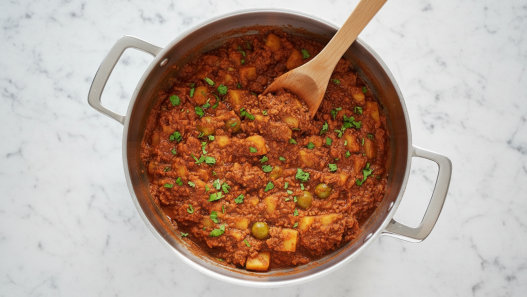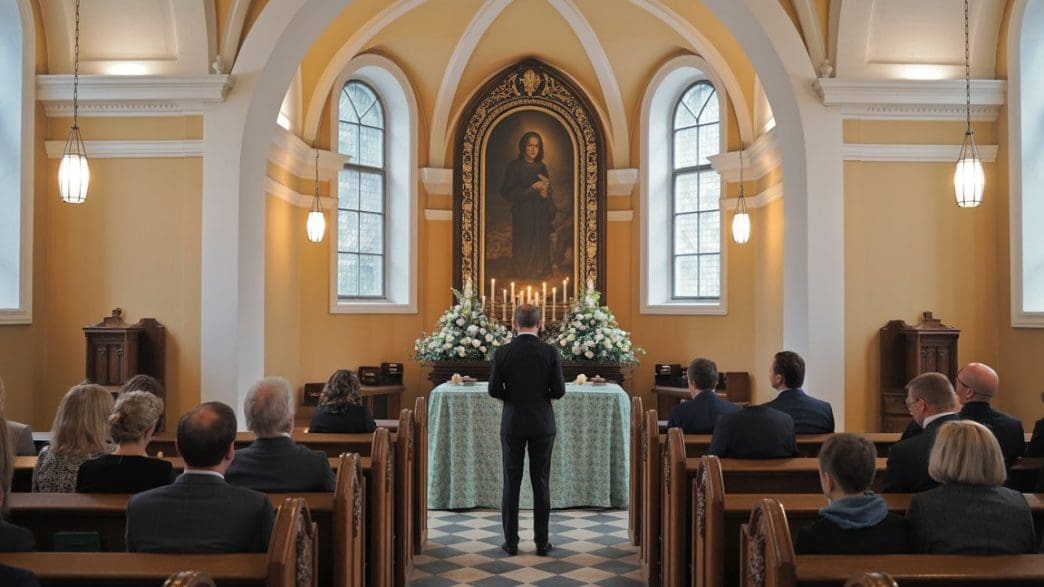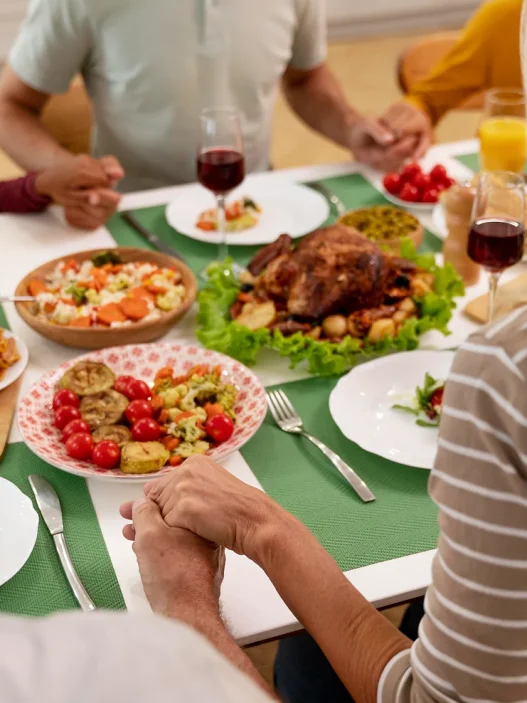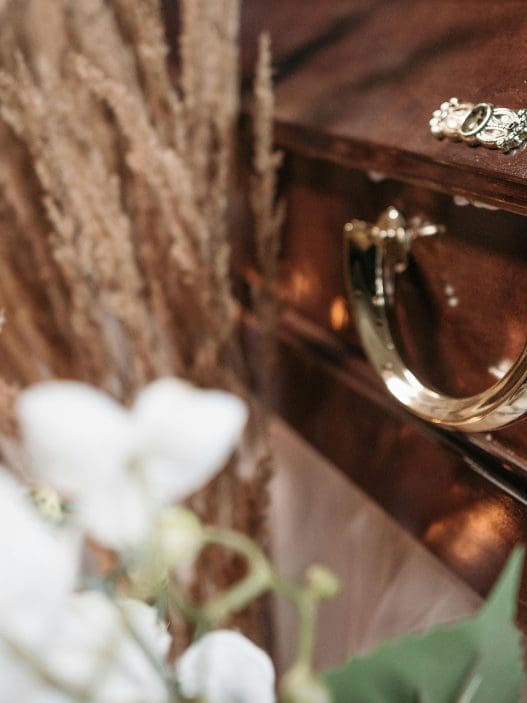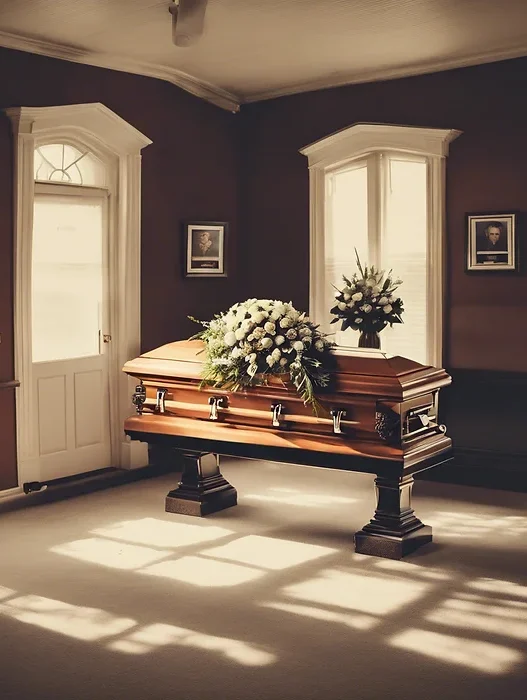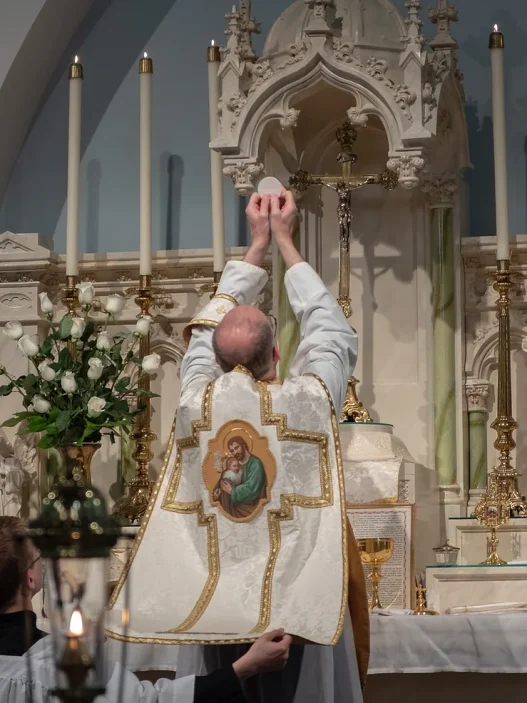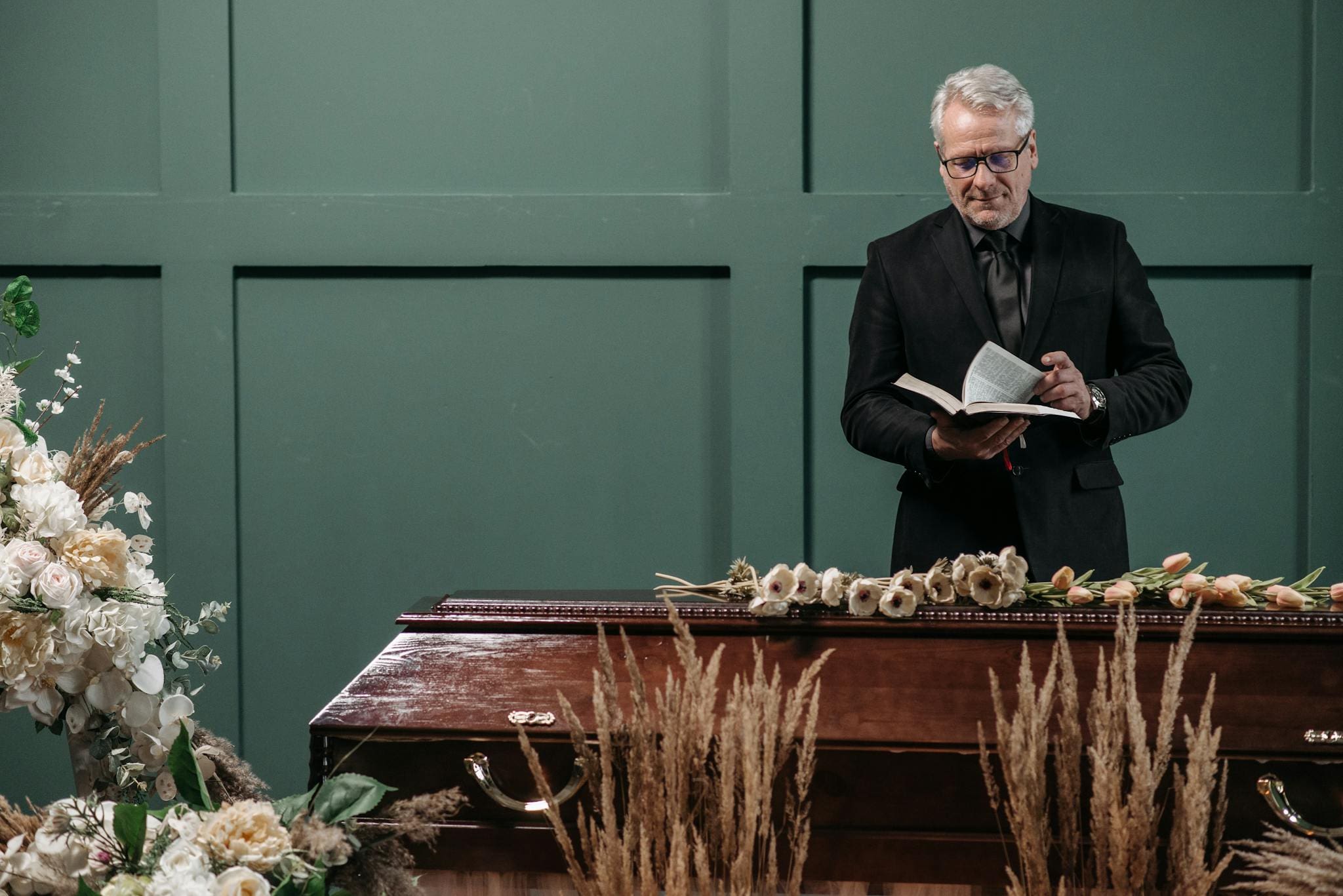Private funerals provide a discreet and intimate environment for families to mourn and celebrate the life of a loved one without the emotional or social burdens of a large public gathering. These types of services are increasingly common due to personal preferences, religious beliefs, or specific situational needs. Below is a detailed guide that outlines every aspect of planning a private funeral, covering etiquette, logistics, communication, and essential decision-making.
What Is a Private Funeral?
A private funeral is a solemn and exclusive event attended only by those who receive a personal invitation. Unlike public funerals that may be advertised in newspapers or on social media, private funerals are held in limited, controlled settings and often feature fewer than 25 attendees. They are typically conducted in a family home, a reserved room at a funeral home, a private chapel, or a secluded outdoor location. The intention is to create a safe, personalized space for close friends and family members to grieve.
Private funerals may follow the same liturgical or ceremonial structure as public ones but on a smaller scale. These services can include readings, eulogies, prayers, and music. However, the scale and setting are deliberately kept small to allow for reflection and privacy.
Reasons Families Choose Private Funerals
There are many legitimate and personal reasons why a family might choose to hold a private funeral rather than a public one. Some of the most common include:
1. Emotional Safety: Public funerals can be emotionally overwhelming, especially for grieving family members who prefer a quiet and private farewell. A smaller gathering can reduce anxiety and help people grieve more freely.
2. Complex Family Dynamics: When family relations are strained, a private funeral ensures only those closest to the deceased are present, preventing awkward or potentially harmful encounters.
3. High-Profile Individuals: For celebrities, community leaders, or anyone with a public persona, a private funeral limits media attention and maintains personal dignity.
4. Personal or Religious Beliefs: Some cultures and religions advocate for private mourning rituals. Privacy may also be a reflection of the deceased’s values or personal requests.
5. Health and Safety: In the aftermath of public health concerns like pandemics, private funerals help reduce risk and comply with social distancing regulations.
How to Plan a Private Funeral Step-by-Step
Planning a private funeral requires thoughtful coordination, clear communication, and careful decision-making. Here is a step-by-step guide:
1. Determine Attendees
Start by creating a concise list of individuals who were closest to the deceased. This may include immediate family, lifelong friends, or spiritual advisors. Be firm with the list and avoid expanding it unless necessary. Limiting numbers preserves the integrity of a private ceremony.
2. Choose the Type of Funeral
Private funerals can be:
- Traditional (religious or secular)
- Cremation with a short service
- Graveside only
- Home vigil followed by a brief burial
Decide what format best reflects the deceased’s wishes. Religious services may require coordination with a clergy member, while non-religious services might include personalized readings or music.
3. Select a Venue
Pick a setting that aligns with the funeral’s tone. Small funeral homes, private chapels, or even a family home can provide a quiet and intimate environment. For nature lovers, consider a private outdoor location such as a forest or garden.
4. Hire a Funeral Director
Even for private funerals, a funeral director is invaluable. They handle logistics such as transporting the deceased, obtaining permits, and organizing burial or cremation. Ensure they understand the need for privacy and can manage the service discreetly.
5. Notify Attendees Privately
All invitations must be sent directly and confidentially. This can include phone calls, emails, or mailed cards. Avoid public obituaries or social media posts. Details should only be shared with confirmed invitees.
6. Plan the Service Content
Coordinate readings, eulogies, and music. You might include:
- Scripture or poetry
- A slideshow of photos
- Personal letters
- Favorite songs
Ensure the structure reflects the personality of the deceased and resonates with those attending.
7. Arrange Refreshments or Reception
If desired, a small reception can be held afterward. This may be at the same venue, a family member’s home, or a nearby location. Keep catering simple and focused on comfort foods.
Proper Etiquette for Private Funerals
The intimacy of a private funeral places higher expectations on attendees regarding etiquette:
Arrival: Arrive on time and adhere to any dress code. If unsure, default to traditional funeral attire in dark colors.
Participation: Guests should engage respectfully with prayers, songs, or readings and remain silent during personal moments.
Technology: Phones should be silenced or turned off. Photography is typically discouraged unless previously approved by the family.
Discretion: Do not post about the funeral on social media or invite others without explicit permission.
How To Announce A Private Funeral?
Announcing a private funeral requires balance: you must inform relevant individuals while preserving the private nature of the event.
1. Personal Communication: Phone calls and direct emails are ideal for announcing a private service. Avoid mass texts or generic messages.
2. Obituary Language: If publishing an obituary, omit service details and include a line like “A private ceremony will be held.”
3. Clergy or Community Group Notices: If the deceased was part of a religious or community group, ask the leader to privately notify key members.
4. Printed Invitations: For a formal tone, consider sending printed cards. These may include RSVP instructions and a dress code.
How To Send Invites For A Private Funeral?
Invitations should be sent with care and clarity.
Timing: Send them as soon as details are confirmed, ideally 48 to 72 hours in advance.
Method: Use phone calls for close family, then follow up with formal emails or printed invites.
Wording: Clearly state that the event is private. Example:
“You are invited to a private funeral service in loving memory of [Name]. Due to the intimate nature of the service, we kindly ask that you do not share this invitation.”
RSVP: Request confirmations so that seating and refreshments can be planned accordingly.
The Benefits Of A Private Funeral
1. Emotional Intimacy: Guests are more comfortable expressing emotion in a small setting. The service becomes a safe space for grief and healing.
2. Personalization: Families have more freedom to customize every detail without external expectations.
3. Simplicity: Fewer guests allow for a more streamlined planning process, lower costs, and reduced pressure.
4. Conflict Avoidance: Excluding distant relatives or acquaintances can reduce tension.
5. Legacy Protection: High-profile families may use private funerals to preserve the dignity and privacy of the deceased.
The Downside of a Private Funeral
1. Hurt Feelings: Uninvited friends or relatives may feel excluded, especially if unaware of the deceased’s wishes.
2. Limited Support: Fewer attendees may mean less communal support during the grieving process.
3. Less Visibility: Public funerals help communicate a person’s passing to a wide circle. A private one might leave some feeling disconnected.
4. Logistical Pressure: Sending individual invitations and managing RSVPs can be time-consuming.
5. Repetition: Some families later hold a public memorial, effectively doubling the planning and emotional labor.
Private Burial or Cremation: What to Expect
Private funerals often coincide with private burial or cremation ceremonies.
Burial: A short graveside ceremony typically follows the service. Families may choose to shovel earth onto the casket, place flowers, or play a meaningful song.
Cremation: Some families choose to be present when the cremation begins. Others hold a memorial with the urn present.
Scattering Ashes: This is often done privately at a later date, perhaps at a favorite location or family property.
What Music to Play at a Private Funeral
Music at a private funeral should reflect the character, preferences, and spiritual beliefs of the deceased. Classical pieces, instrumental arrangements, or meaningful songs with lyrics can all add depth to the ceremony. In private settings, you can be more personal and creative.
Consider:
- “Ave Maria” by Schubert
- “Clair de Lune” by Debussy
- “Tears in Heaven” by Eric Clapton
- “Somewhere Over the Rainbow” by Israel Kamakawiwo’ole
- A favorite song of the deceased
Live performances by a family member or friend can also offer a heartfelt tribute. Silence between pieces is equally powerful and can provide emotional space.
What Food to Serve at a Private Funeral
Serving food after a private funeral offers comfort and encourages conversation. Because the group is small, food can be more personal. Homemade dishes, family favorites, or catered comfort food work well.
Common options include:
- Tea, coffee, and soft drinks
- Finger sandwiches and pastries
- Soup and bread
- Buffet-style comfort food
- Desserts like pie, cake, or fruit
If hosting at home, consider dishes that can be prepared ahead of time or contributed by guests. Labeling food for allergies or dietary restrictions is courteous.
Eulogy Example for a Private Funeral
“Good afternoon. Thank you all for coming today to honor and remember [Name]. We gather here not just to mourn a loss, but to celebrate a life that touched each of us in profound ways. [Name] was many things, a friend, a parent, a partner, a guide.
What made [Name] truly special was their unwavering kindness. Whether it was a small act of thoughtfulness or a grand gesture of generosity, they always made others feel seen and loved. I remember countless afternoons spent in their kitchen, laughing over cups of tea and listening to stories I never wanted to end.
[Name] faced challenges with quiet strength and always found time to help someone else, even when their own burdens were heavy. They taught us not just how to live, but how to love, and how to let go with grace.
Though our hearts ache with their absence, we are grateful for every moment we had. Let us carry their memory with us, not as a weight, but as a light.
Thank you, [Name]. We will miss you deeply, but your spirit remains in all of us.”
Hosting a Memorial Service Later
A private funeral may be followed by a public memorial:
- Held weeks or months after the death
- Open to the broader community
- Allows those who were not invited to the funeral to participate in remembrance
This dual approach meets both personal and social needs. The private funeral offers emotional sanctuary, while the public memorial expands collective mourning.
Private Funeral vs. Public Funeral
| Feature | Private Funeral | Public Funeral |
|---|---|---|
| Attendees | Invitation only | Open to all |
| Venue | Small, controlled | Funeral homes, churches |
| Cost | Lower | Higher due to scale |
| Planning | Personalized | Standardized |
| Media | No coverage | May be published or shared |
A private funeral is not just a scaled-down version of a public one. It is a deeply personal, intentionally designed ritual that provides space for reflection, grief, and remembrance without external pressure. By following proper etiquette, clearly communicating with attendees, and making thoughtful decisions about each aspect of the ceremony, families can ensure a respectful farewell that honors their loved one with dignity and love.




